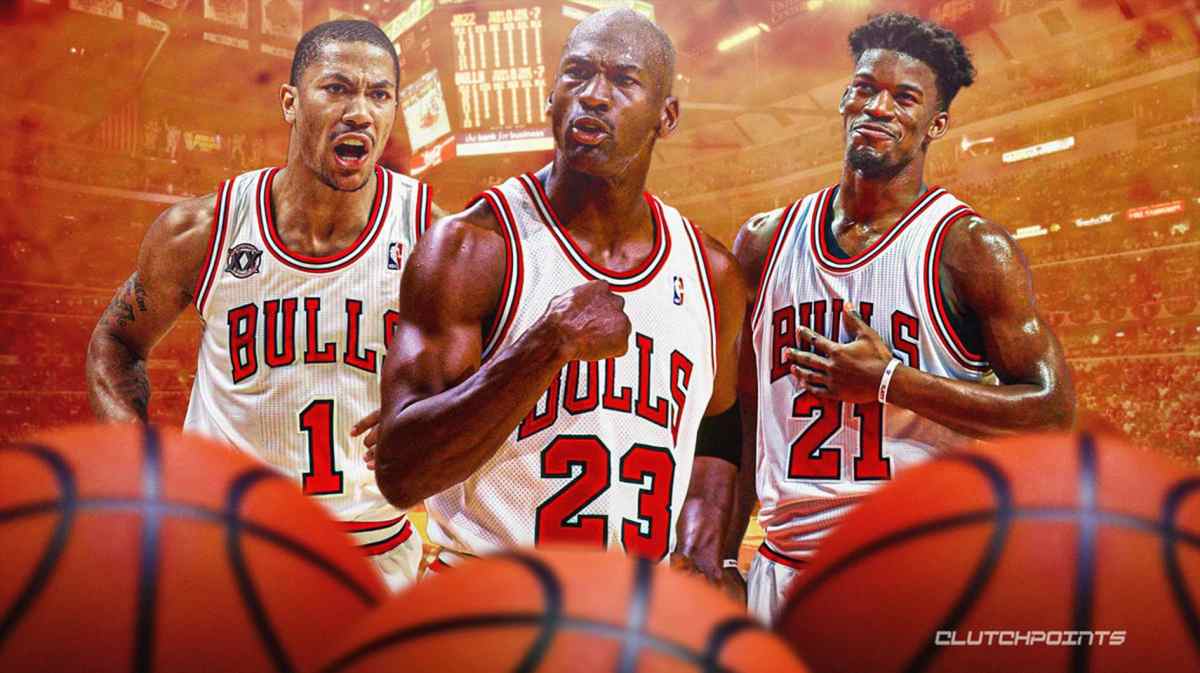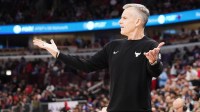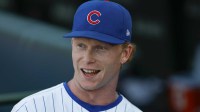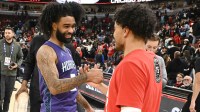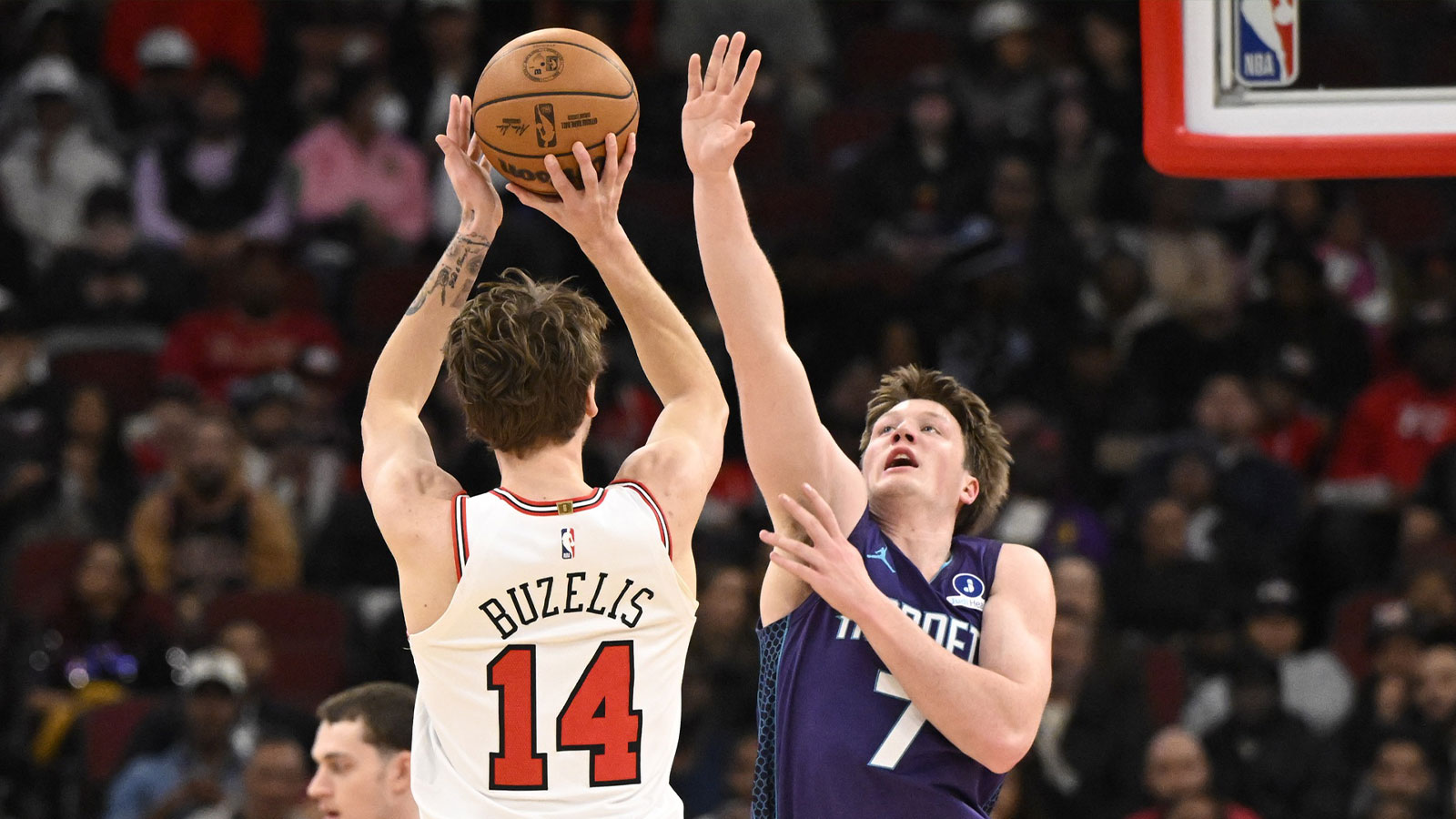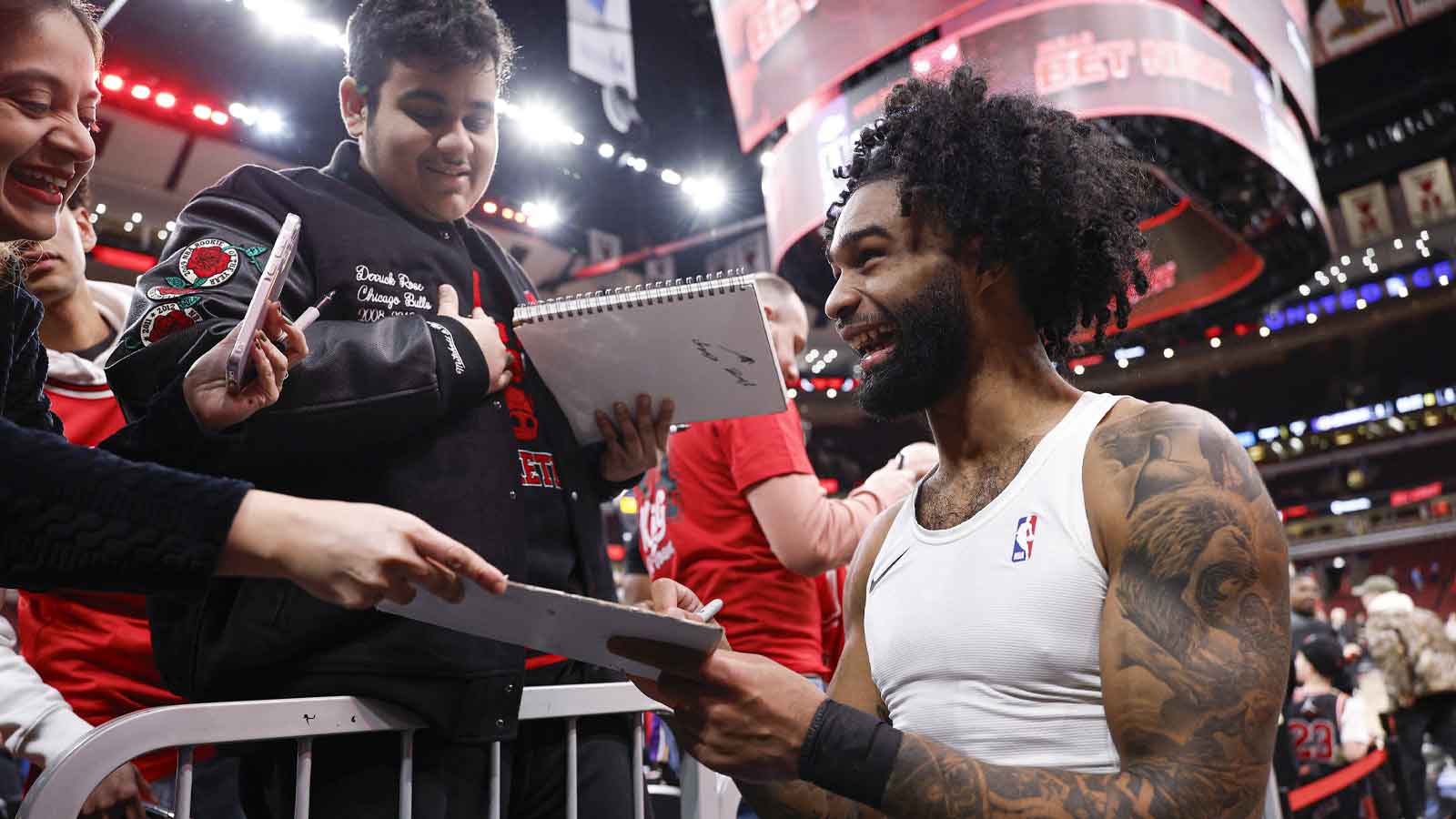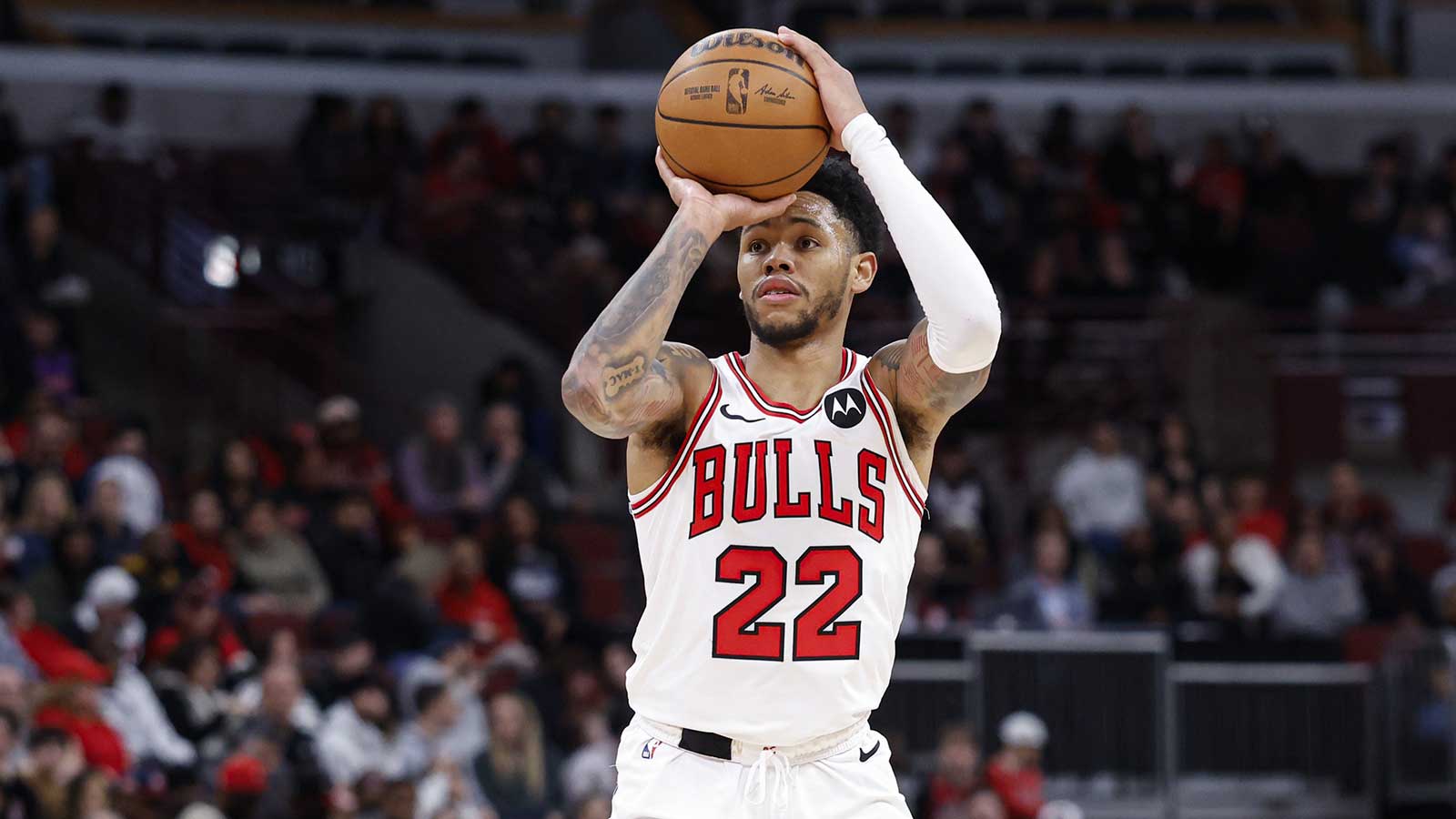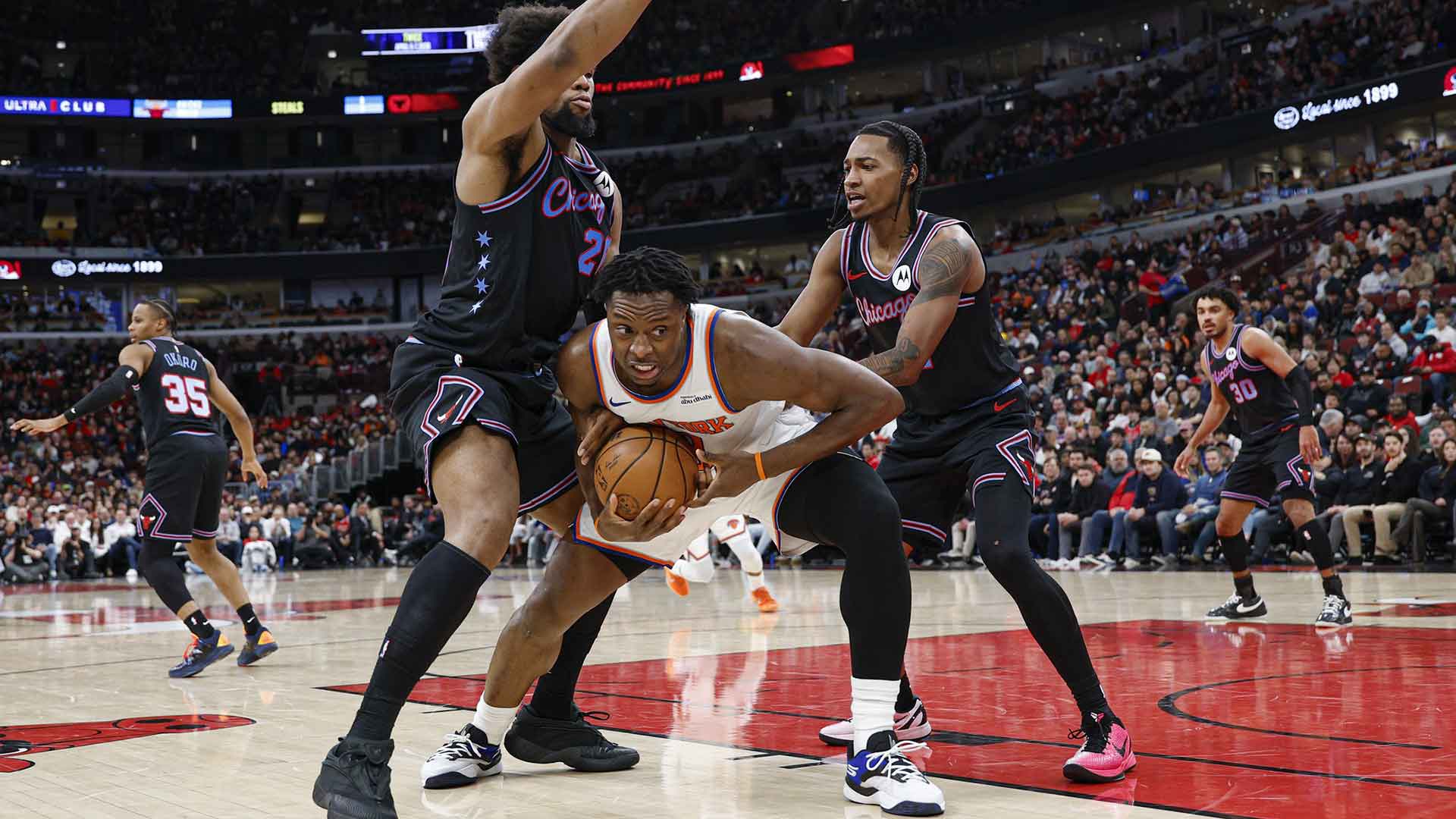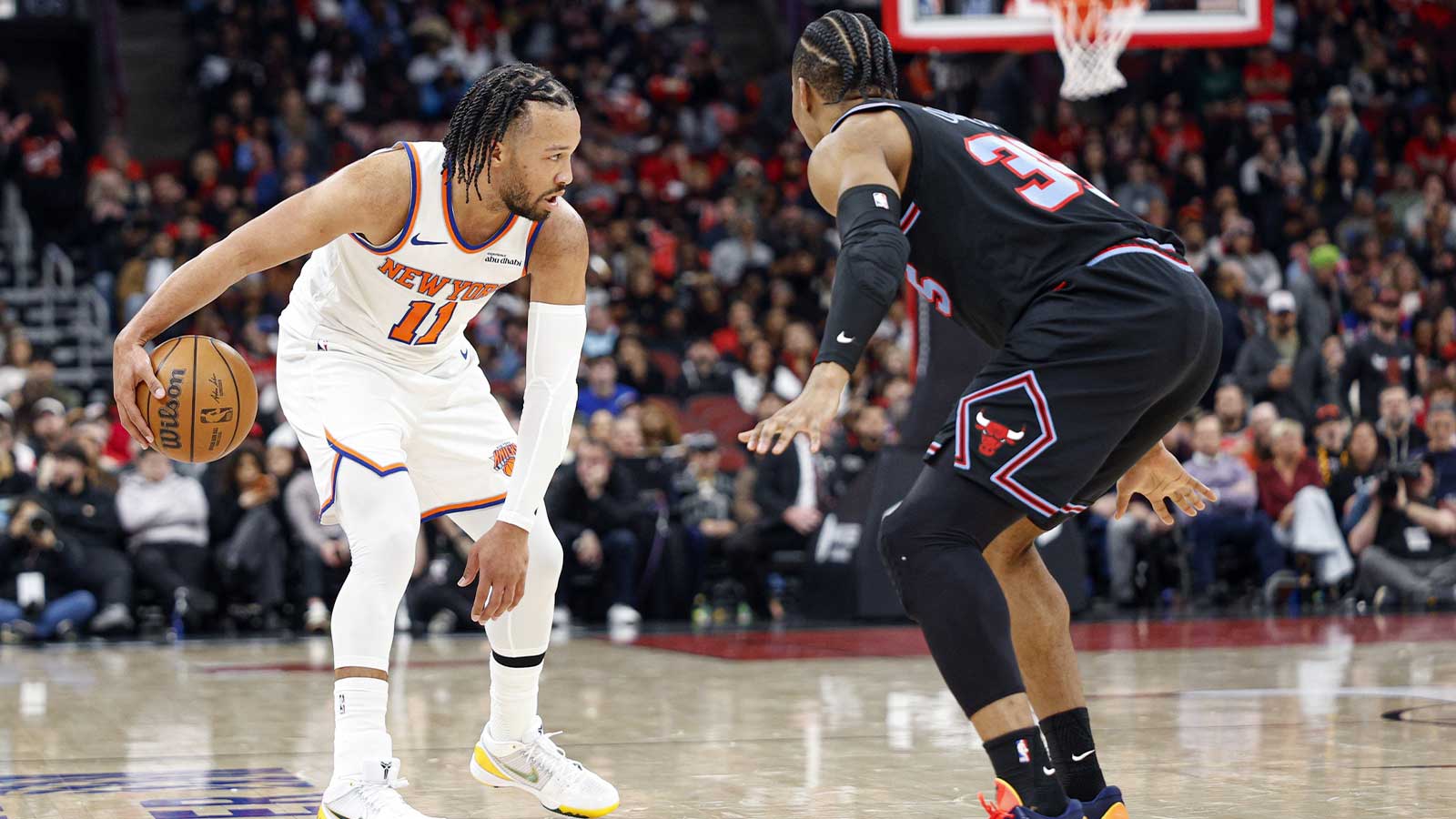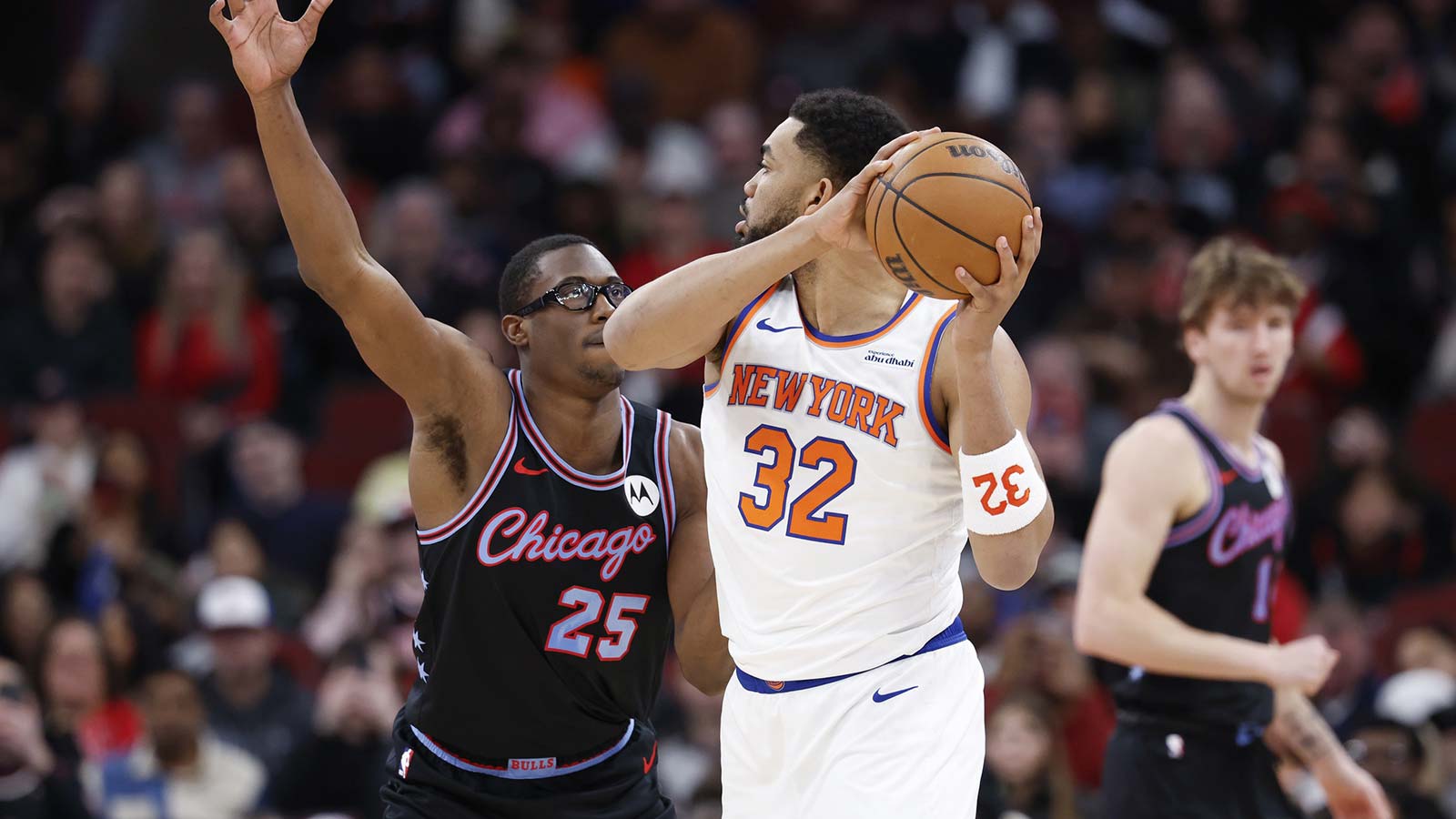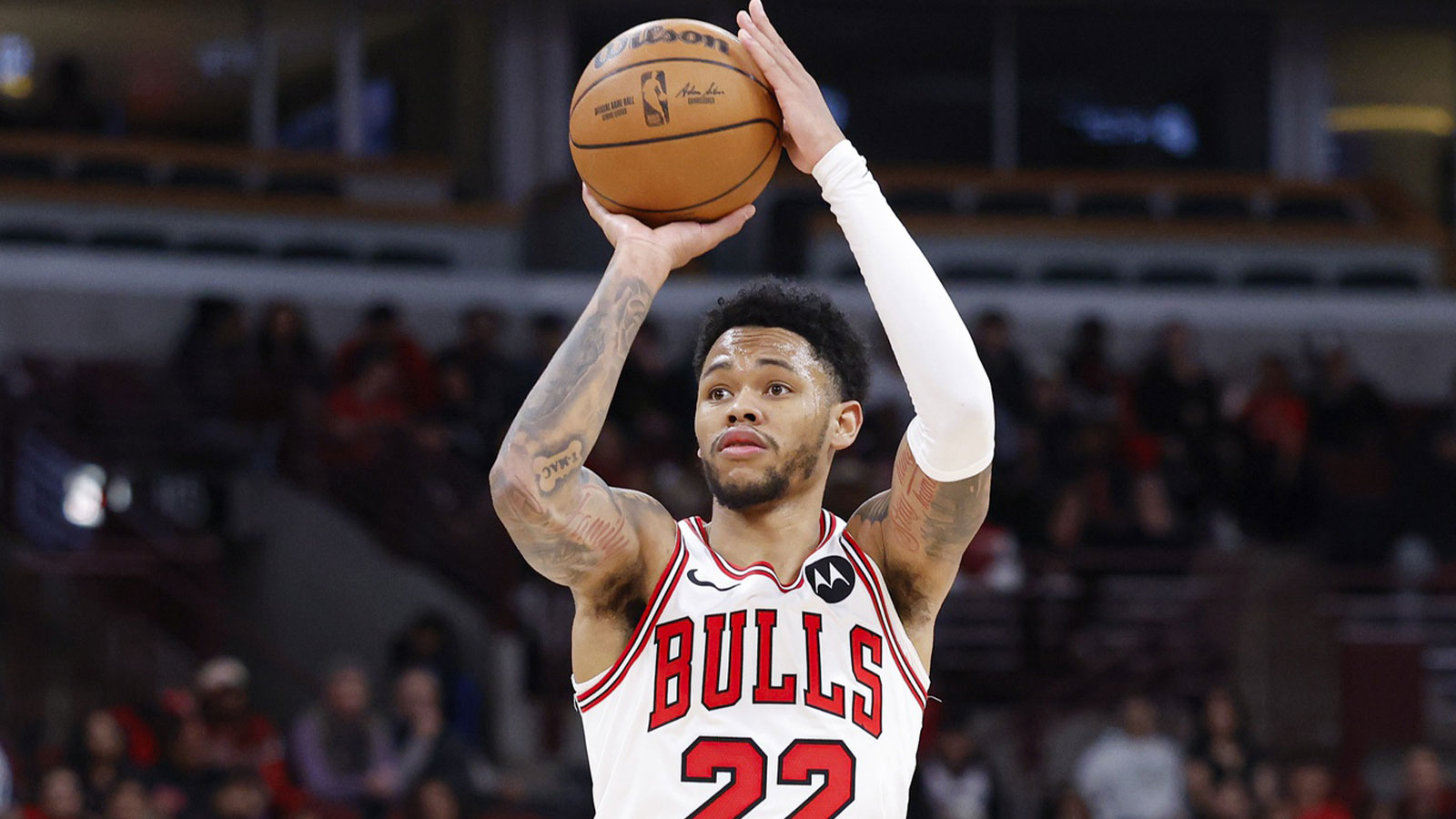The Chicago Bulls are one of the most storied franchises in the history of the NBA — and that is in large part due to one particular man: Michael Jordan. Chicago is one of the biggest and brightest basketball markets in the league. But surprisingly enough, the Bulls haven't really had much success in landing big-name free agents. Unexpectedly, though, Chicago has been much better at finding talent through the NBA Draft. From the GOAT himself, to the youngest MVP in league history, to a gem at the very end of the first round, to an unheralded lefty from Europe, the Bulls have found them all. With that said, let's dig deep into the archives and check out the 10 best draft picks in Chicago Bulls franchise history.
10. Orlando Woolridge
The Bulls selected Orlando Woolridge with the sixth pick in the 1981 NBA Draft. Woolridge played sparingly in his rookie campaign, averaging just over 15 minutes in 75 appearances. He earned a larger role in his sophomore campaign, where he started in 37 of 58 games and averaged over 28 minutes a night. He finally earned a spot in the starting lineup in his third season as he worked his way to becoming a 20-point scorer in the league.
The 6-foot-9 Woolridge was also known for his dunking and competed in the 1984 and 1985 Slam Dunk Contests. He was the first player ever to perform a between-the-legs dunk in the competition.
With Michael Jordan sidelined for much of the 1985-86 season due to a foot injury, Woolridge carried the team in scoring with an average of 20.7 points, 5.0 rebounds, and 3.0 assists. Despite finishing with just a 30-52 record, the Bulls still made the playoffs. Overshadowed by Jordan's epic series versus the Boston Celtics, Woolridge averaged 21.0 points in the three-gamer.
That wound up becoming Woolridge's final year in Chicago as he bounced around the league for the rest of his career. He had the best individual campaign of his career in the 1990-91 season with the Denver Nuggets, where he averaged 25.1 points per game.
9. Kirk Hinrich
Ask any Bulls fan about Kirk Hinrich and they could go on for days telling you about how much they loved having him on the team. The Bulls drafted Hinrich at No. 7 in the loaded 2003 NBA Draft. The Kansas Jayhawks standout wasn't expected to be taken that high, but the Bulls had a need at point guard after Jay Williams had a career-ending motorcycle accident.
Hinrich showed exactly why the Bulls made the right decision in drafting him. He immediately earned the starting point guard spot in his rookie season with his sound fundamentals, terrific basketball IQ, and tenacity on the defensive end. The 6-foot-4 guard averaged 12.0 points, 3.4 rebounds, and 6.8 assists as he made the 2003 All-Rookie First Team alongside a Hall of Fame set of LeBron James, Dwyane Wade, Carmelo Anthony, and Chris Bosh. Imagine being in the same breath as that group. Only Kirk Hinrich had that honor in his rookie campaign.
Hinrich averaged a career-best 16.6 points to go along with 3.4 rebounds, 6.3 assists, and 1.3 steals during the 2006-07 season. That was also the same year he made the All-Defensive Second Team. In 2008, he was relegated to a bench role after the Bulls drafted Derrick Rose with the first overall pick. After playing two years as Rose's backup in 2008-09 and 2009-10, Hinrich had stints in Atlanta and Washington, before eventually returning to Chicago in 2012 to play two-and-a-half more seasons with the franchise.
Despite never making an All-Star team, Captain Kirk is still one of the most beloved Bulls players in franchise history.
8. Horace Grant
Chicago picked Horace Grant out of Clemson with the No. 10 pick in the 1987 NBA Draft. The 6-foot-10 power forward came off the bench for most of his rookie year, but it didn't take long for him to earn a spot in the first unit. Grant assumed the starting power forward role in just his second season, where he averaged 12.0 points and 8.6 rebounds on 51.9 percent shooting from the field.
Grant gave the Bulls an enforcer in the front court that helped them deal with the physicality of the Detroit Pistons, who knocked them off the postseason from 1989 to 1990. With Grant emerging as a steady force up front, Chicago finally got past the Pistons in the 1991 NBA Playoffs and swept their past tormentors in the Eastern Conference Finals. He helped the Bulls win their first NBA championship that same season and eventually to two more in 1992 and 1993.
In the summer of 1993, however, Michael Jordan shockingly announced his retirement from the league. With Jordan gone, Grant was relied upon to step up offensively. He averaged a career-best 15.1 points, to go along with 11.0 rebounds, and 3.4 assists in the 1993-94 season as he earned the lone All-Star nod of his career.
Grant left Chicago as a free agent in 1994 and signed with an Eastern Conference rival in the Orlando Magic. With the Magic, he helped Orlando take down his old team during the second round of the 1995 playoffs. Though Grant joined the enemy, he is still one of the most beloved Bulls in franchise history for playing a key role in winning them their first three-peat.
7. Reggie Theus
The Bulls selected Reggie Theus with the 9th overall pick in the 1978 NBA Draft. Theus had a strong rookie season with averages of 16.3 points and 5.2 assists as he finished as runner-up for the 1979 Rookie of the Year award. The rookie was also the second leading scorer of the team that season, just behind Hall of Fame big man Artis Gilmore.
Theus earned his first All-Star nod in the 1980-81 season. That year, the 6-foot-5 guard averaged 18.9 points, 3.5 rebounds, and 5.2 assists to help lead the Bulls make the postseason and win a playoff series before falling in the second round.
Theus made his second All-Star team in 1982-83, where he turned in a career-best average of 23.8 points. Surprisingly, following his career scoring year, new Bulls coach Kevin Loughery decided to move Theus to the bench. His productivity dropped tremendously as a result and this prompted Chicago to move on from the former UNLV standout. Theus was traded during the 1983-84 season and he finished his Bulls career with averages of 18.8 points and 5.6 assists in 441 games. His departure opened up a spot at shooting guard, which Chicago filled in the 1984 NBA Draft. Any idea on who that guy might be?
6. Joakim Noah
The Bulls selected Joakim Noah with the 9th overall pick in the 2007 NBA draft. The 2-time NCAA Champion is one of the most beloved figures in Bulls history. Noah endeared himself to Chicago fans with his infectious energy, hustle, and unorthodox playing style.
The 6-foot-11 big man slowly worked his way up in the Bulls rotation and turned himself into a nightly 10-point, 10-rebound threat until he became a full-time starter in the 2010-11 season, the same year he made his first All-Defensive team. The former Florida Gator also earned his first All-Star nod in the 2012-13 season, where he averaged 11.9 points, 11.1 rebounds, 4.0 assists, and 2.1 blocks.
Noah turned it up a notch the following season and had the best year of his career. He averaged 12.6 points, 11.3 rebounds, and 5.4 assists as he made his second All-Star team. He also earned a spot in the All-NBA First Team and won the league's Defensive Player of the Year award in 2013-14.
Noah's production dropped over the next two seasons as he struggled with injuries and as a result, he lost his spot in the starting lineup. His legendary Bulls tenure ended in 2016, when he signed with the New York Knicks as a free agent.
5. Toni Kukoc
The Bulls selected Toni Kukoc in the second round of the 1990 NBA Draft, but it wasn't until three years later when he officially put on a Bulls uniform. Kukoc continued to play in Europe as he watched Michael Jordan and the Bulls win their first three-peat. Unfortunately, when he finally reported to duty in Chicago, Michael Jordan shockingly retired from the NBA.
Nonetheless, Kukoc made an immediate impact upon his arrival in Chicago. He averaged 10.9 points, 4.0 rebounds, and 3.4 assists en route to making the All-Rookie Second Team. His numbers rose to 15.7 points, 5.4 rebounds, and 4.6 assists as he made 55 starts in 81 games during his sophomore year in the NBA. Jordan returned midway through that same season, but Chicago failed to win the NBA championship.
In Jordan's first full season back, the Bulls went on an absolute revenge tour and won a then-record 72 wins. Kukoc, in particular, bought into his role as the team's sixth man. He came off the bench in 61 games and his strong play earned him the 1995-96 Sixth Man of the Year award.
Of course, the Croatian became a key piece in helping the Bulls win their second three-peat in the 1990s. Kukoc wound up playing one and a half more seasons in Chicago following their final NBA title in 1998.
4. Artis Gilmore
Artis Gilmore was already an established professional basketball player prior to coming to the NBA. The 7-foot-2 center was a star in the ABA and won the league's MVP in 1975. When the ABA folded in 1976, Gilmore entered the special ABA dispersal draft. The Bulls were fortunate enough to have the first overall pick and used it to select Gilmore.
The Chipley, Florida native became an instant star for the Bulls, as he led the team in scoring, rebounds, and blocks in his first season in Chicago. His presence inside the paint helped the Bulls hold their opponents to a league-best 98.0 points per game.
Gilmore wound up making four All-Star appearances (1978, 1979, 1981, 1982) during his time in Chicago. Though he enjoyed plenty of individual success, Gilmore only made two playoff appearances with the Bulls. He led the Bulls to playoffs in his very first year (1977) and again in 1981, where they won a playoff series and defeated the New York Knicks in the first round.
Gilmore still holds the franchise record in blocks per game, total blocked shots, and field goal percentage.
3. Jimmy Butler
The Bulls struck gold when they selected Jimmy Butler with the very last first round pick in the 2011 NBA Draft. As he has done his entire life, Butler had to prove himself once again when he arrived in the NBA.
Butler played sparingly in his rookie campaign, but he eventually worked his way to becoming a starter by his third season with the Bulls. He started in all of his 67 appearances in the 2013-14 season and made the All-Defensive Second Team.
The 6-foot-7 guard had his breakout year in the 2014-15 season, where his averages of 20.0 points, 5.8 rebounds, and 1.8 steals earned him the league's Most Improved Player of the Year award. He also made the first of three straight All-Star appearances with the Bulls. With Derrick Rose on the decline due to his lingering knee injuries, Butler eventually emerged as the team's franchise player.
Butler had what is still the best scoring season of his career in 2016-17, where he averaged 23.9 points per game. This also earned him a spot on the All-NBA Third Team. However, that season was marred with controversy with Butler and fellow veteran Dwyane Wade calling out the young guys of the team after a brutal loss in late January. That season also wound up being Butler's final with the Bulls.
2. Derrick Rose
Derrick Rose gets the No. 2 spot simply because he spearheaded the Bulls into their most successful run after the Michael Jordan era. Rose also had one of the fastest ascensions to superstardom in the modern NBA.
Chicago selected Rose with the No. 1 overall pick in the 2008 NBA Draft and made an immediate impact in his rookie season. He won Rookie of the Year and by year two, he was already an All-Star. Prior to his third NBA season, Rose infamously said he could become the MVP of the league. That's exactly what he did in the 2010-11 season as he led the Bulls to the best record in the Eastern Conference. Though they lost in the 2011 ECF to the Miami Heat, it became clear that Rose is destined for greatness in the NBA.
But unfortunately, the basketball gods had other plans. Rose suffered a career-altering torn ACL in Game 1 of the 2012 playoffs and he was never the same player since. He came in 2013, but knee issues and injuries continued to persist. The Bulls finally pulled the trigger on their prodigal son when they traded him to the New York Knicks in the 2016 offseason. Rose was heartbroken when he received the news that he was no longer a Bull. Nonetheless, Bulls fans still love him for everything he brought to the Windy City.
While Rose will forever remain one of the biggest “what ifs” in league history, he is still worth celebrating for what he was able to do in Chicago. To this day, D-Rose is still one of the most beloved figures in franchise history.
1. Michael Jordan
I mean, who else did you expect? The Chicago Bulls changed their fortunes forever — and even the entire landscape and history of the NBA for that matter — when they selected Michael Jordan with the 3rd overall pick in the 1984 NBA Draft. Chicago must thank the Portland Trail Blazers — and to a lesser extent, the Houston Rockets — for not picking the 6-foot-6 guard from North Carolina. Or else, they probably would never have become relevant as a franchise.
As all hoops junkies know, Michael Jordan essentially had the 1990s on a stranglehold, as he led the Bulls to six NBA championships. But it wasn't all rainbows and butterflies, especially during the first few years of MJ's career in Chicago. Jordan and the Bulls still had to go through several obstacles such as Larry Bird's Boston Celtics and Isiah Thomas' Detroit Pistons before they finally reached the mountaintop in 1991.
Jordan led the Bulls to their first three-peat, before he shocked the world and infamously retired during the 1993 offseason. MJ's love for basketball didn't keep him out of the game for long as he returned to the Bulls two years later.
After falling in the 1995 NBA Playoffs to the Orlando Magic, Jordan took things personally and led Chicago to a then-NBA regular season record 72 wins in the 1995-96 campaign. The Bulls punctuated the best season ever with a title by beating the Seattle Supersonics in the NBA Finals to cap off Jordan's revenge story. They later completed their second three-peat of the decade by defeating the Utah Jazz in back-to-back seasons.
Jordan had plenty of epic moments throughout his GOAT career — from the acrobatic shot in the 1991 Finals, to the Flu Game, to that iconic game-winning shot in Utah that sealed their second three-peat.

